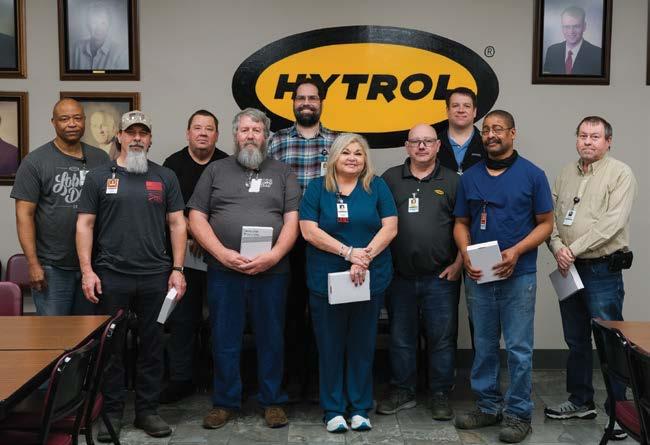








At Arkansas Community Foundation, we believe the strength of our state lies in its people: their skills, resilience and willingness to step into opportunity. One of today’s greatest opportunities is preparing Arkansas’ workforce for the future.
Across Arkansas, employers face a pressing challenge of not enough workers with the right skills. According to Aspire Arkansas, only 40% of Arkansans hold a postsecondary credential or degree, even though an estimated 70% of future jobs will require one. While technical and trade careers in construction, health care, manufacturing, and transportation offer good wages and advancement, they remain overlooked.
The good news is that there are initiatives to meet this challenge. In this issue of Engage, you will learn about the Academies of Central Arkansas, an initiative supported by the Little Rock Regional Chamber that connects high school students with hands-on career pathways in the trades. In addition, you will see how a small library in Johnson County is helping adults build computer and resume skills, and how the East Arkansas Business Development Council has created an endowment to expand workforce training opportunities.
You will also read from the Arkansas State Chamber’s program Be Pro Be
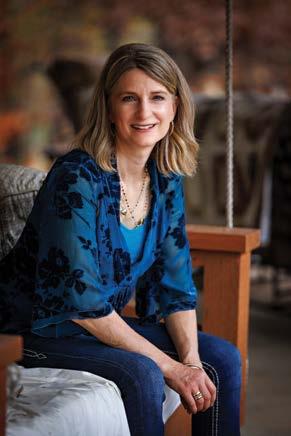
Proud Arkansas that hosts mobile workshops traveling the state, letting students “test drive” technical careers through virtual reality. Thousands of young Arkansans have discovered stable, high-wage professions they might never have considered. All these efforts prove that when we align education, community support, and industry demand, we create pathways for Arkansans of all ages and backgrounds to succeed.
Workforce development is not just an economic issue; it is a community issue. We all have a role to play. You can support this work by encouraging young people to explore all career options, investing in workforce training programs, and advocating for access to education that meets people where they are. By doing so, you help ensure that Arkansas not only fills jobs, but also builds hope, stability, and opportunity for generations to come.
With gratitude,

Heather Larkin President and CEO
Photography — Steve Rogus
Designer — Lesley Cooper, Cooper


by Jessica Hughes Ford
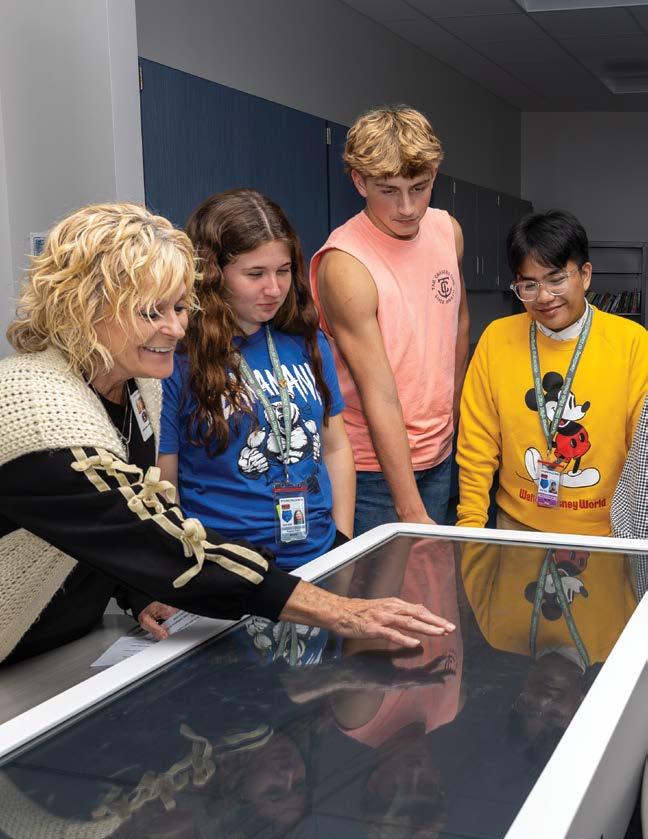
At Sylvan Hills High School in Sherwood, the future doesn’t feel distant. It hums in the hallways and feels very much present in the here-and-now. Students run gel electrophoresis in the lab, complete CPR and financial management training, and sit for mock interviews with local professionals. It is all part of the Academies of Central Arkansas, a relatively new model linking high school learning to real careers.
For senior Nathan Lam, the effect is personal.
“I’ve always wanted to help people,” he said. “Health care seemed like the place where you can directly do that. But I didn’t really know what that looked like until I got into this program.”
Through his pathway at Sylvan Hills, Lam has taken medical courses, job shadowed, and interned at Arkansas Children’s Research Institute, a partner of the Academies. There, he
and thought, ‘Wait, I’ve done this in my classes.’ The hands-on work made me more confident.”
That word, confidence, comes up often among Sylvan Hills students.
Nathan credits his medical sciences teacher, Melissa Duncan. “I appreciate her humor and the way she answers questions until you get it. That makes you want to ask, which makes you want to learn,” he said.
Duncan, a veteran biology and AP instructor, has seen a major shift. “Before, even in AP biology, we did level-one labs,” she said. “Now my students are purifying proteins and talking about recombinant genes like it’s normal. That’s a shift from rote learning to doing.”

Partnerships make that possible. “I’m not a doctor; I don’t suture,” Duncan said with a laugh. “But with Academy partners, I got a physician in my classroom so students could try it. By doing so, they become confident,” she said. “They are steps ahead of most graduating seniors, and suddenly bigger goals don’t seem out of reach.”
Felicia Wheat, lead academy coach for Pulaski County Special School District, has been in her role for about three years. “In classrooms, teachers teach through the lens of a career,” she said. “In geometry, for example, you might apply formulas to calculate the cost of carpeting a room.”

The Academies began locally in 2017, when the Little Rock Regional Chamber took four superintendents to Nashville, Tennessee to study its career-connected model. Nashville’s approach helped lift graduation rates and industry credentials. Central Arkansas became one of the few regions nationwide to adopt it across multiple districts, requiring coordination of class schedules, staff roles and planning. The up-front work has been significant, but it is paying off.
The Academies’ latest annual report shows:
• Industry-recognized credentials rose from 800 to 2,899
• 94 partners contributed almost 12,000 hours, valued at $1.17 million
• Internships jumped from 112 to 894 in one year
• Students earning 3 or higher on AP exams increased 38 percent
Enrollment at Academy high schools has grown three years in a row, a counter-trend in public education. “When students have real options, they are choosing our public high

more than 1,500 students,” said Tracy Allen, principal at Sylvan Hills. “The academy structure created smaller learning communities so kids don’t fall through the cracks. Each academy has its own principal and counselor, and core teachers are aligned to academies.”
Soft skills are taught alongside technical training. Last year’s theme was networking. Teachers greeted students with handshakes, practiced professional introductions, and hosted a luncheon where students learned etiquette and talked with business leaders by career interest. This year’s theme is leadership.
Freshmen meet career experts; sophomores take industry tours; juniors complete job shadows, and seniors pursue certifications, capstones and internships with direct feedback from professionals. Local partners make it real and more successful. Arkansas

Children’s alone invests thousands of hours, bringing marketing, HR, IT and clinical experts into classrooms while hosting internships and certifications. WER Architects and Michael Baker International, an engineering firm, co-teach standards and host tours in engineering. At Mills High School, steel fabricator Lexicon, Inc. transformed welding enrollment from 2 to 135 in 16 months by investing in onsite welding bays.
The message from partners mirrors what students hear in labs: high expectations and real purpose. As Patrikc Schueck, president and CEO of Lexicon, told a packed auditorium of construction and welding students, “This work is hard and we’ll push you. Whether you work for us or our competitors isn’t the point. Find your purpose and pursue it.”
For business leaders trying to bring more jobs and opportunity into the state, this is economic development in action. “When companies scout central Arkansas, their second question after land is workforce,” said Jewett. “Now local leaders can point to specific workforce pipelines and the
“I’ve always wanted to help people. Health care seemed like the place where you can directly do that. But I didn’t really know what that looked like until I got into this program.”
Nathan Lam Academies student
number of projected graduates by field. These new employers bring revenue back to districts, strengthening schools and neighborhoods in a full-circle way.”
There are deeper hopes too, like deterring youth involvement in harmful paths by showing them real futures. Teachers and students alike consistently attribute the transformation using the same word: confidence.
Ask Lam the greatest thing the program has given him: “Confidence,” he said. “Research used to be scary. Now the lab feels familiar. Interviews feel doable.”
Duncan smiles at that. “If they are frustrated, they are learning,” she said. “This program gives kids the chance to struggle productively, but we are setting them up to succeed in real life.”
The Academies of Central Arkansas are not just building resumes. They are building the state’s workforce and the confidence for a brighter future.


by Jessica Hughes Ford
At the Johnson County Library in Clarksville, books are just the beginning. Today, the library has become a lifeline for residents seeking the skills and confidence to enter or reenter the workforce.
For library manager Jimmy Ritchie, the mission is rooted in home. He grew up visiting this library with his mother, discovering the world through books and finding a sense of belonging. Now he is paying that forward. He is committed to making the library a bridge to opportunity for neighbors who need a hand, a skill or simply a place to start.
The library started Technology Tuesdays, a kind of tech support to help senior citizens, but demand quickly spread. “It’s turned into every day of the week,” Ritchie said. “People just show up, and we might see five to 10 in a week, sometimes more, to get help with their cell phones or laptops.”
When clothing manufacturer Hanes closed its Clarksville plant in 2023, more than 230 workers lost their
jobs. The ripple effects hit families across Johnson County. The library responded with Workforce Wednesday, a program connecting jobseekers with local employers, résumé help and interview coaching.
“One woman who lost her job at Hanes came here, and we helped her build a résumé and apply for jobs online. She’d never done that before,” Ritchie said. “She got hired at Walmart, and told us she was so grateful because it meant she didn’t lose her home. That’s the kind of difference we want to make.”
Ritchie sees libraries as more than a quiet place to find books. “I’ve always viewed libraries as a community hub where people come together,” he said. “With the cost of living so high, many can’t afford computers, books or even internet access. We provide both, and a safe environment where they can find support. When it comes to workforce and career readiness, we can step in and be part of the solution.”

The Johnson County Library is a branch of the Arkansas River Valley Regional Library System. A recent Workforce Wednesday Workshop was held for locals to drop in.
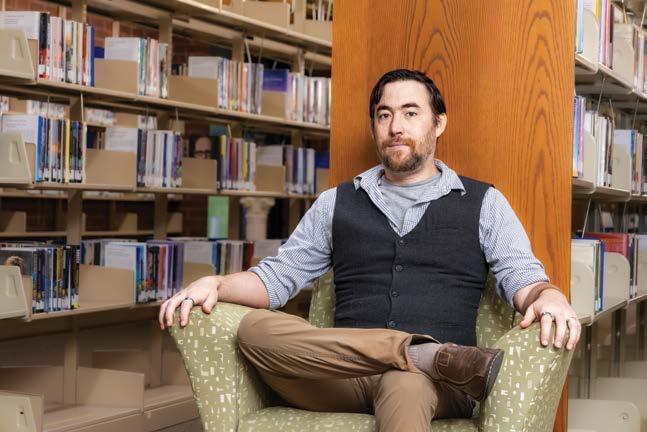



Collaboration has been key. The library partners with:
• Staffmark, a staffing agency that hosts monthly on-site job fairs and interviews.
• The River Valley Adult Learning Alliance, where Ritchie serves on the board, connecting adults with tutoring, laptops and Wi-Fi hotspots.
• The Johnson County Chamber of Commerce, which teams up on workshops and community programs.
Another valuable resource has been DigitalLearn.org, an online platform created by the Public Library Association. Their free courses cover everything from basic searches and email to Microsoft Word and cloud storage. Participants who finish receive a certificate to document their skills.
Ritchie hopes the short-term impact is simple: helping residents find jobs and gain confidence. But his long-term vision is broader. “I want to connect people to success and to living a life of worthiness and purpose,” he said. “If people can thrive here, they won’t feel like they have to leave Johnson County to find other opportunities.”
With new businesses moving in, along with downtown revitalization and the Chamber of Commerce promoting local tourism, momentum is building. The library is doing its part by showing how workforce development can strengthen not just individuals, but entire communities.
For Ritchie, working at the same library his mother once brought him to as a child is especially meaningful. “Reading and literacy are transformational,” he said.
“Those skills can take you anywhere. Now I get to give back to the community I grew up in and help others unlock their potential. Because you never know what someone is capable of accomplishing.”
In Johnson County, opportunities are not only found in classrooms or job sites. Increasingly, they start at the library, a community hub where people gain the tools, the confidence and the hope to build a brighter future.

by Andrew Parker, Executive Director at Be Pro Be Proud Arkansas
Be Pro Be Proud Arkansas is a statewide workforce initiative designed to change perceptions of technical professions and connect students with high-demand, high-wage career opportunities.
Founded in 2016 by the Arkansas State Chamber of Commerce and the Associated Industries of Arkansas, the program addresses one of the most pressing challenges facing the state: a shortage of skilled professionals in industries critical to economic growth.
From construction and manufacturing to transportation and utilities, technical professions are the backbone of Arkansas’ economy. Many students are unaware of the stability, competitive pay, and advancement opportunities these careers provide. For years, cultural emphasis has leaned heavily toward four-year college degrees, leaving trade-based pathways undervalued and underexplored. Be Pro Be Proud Arkansas was launched to help reverse this trend by bringing awareness, resources, and interactive experiences directly to students.
The most visible part of Be Pro Be Proud Arkansas is its innovative Mobile Workshop, an interactive, high-tech trailer that travels to schools, community events and career fairs across the state. The workshop functions like a mobile career exploration lab, packed with virtual reality simulators and interactive exhibits that give students a feel for what it’s like to
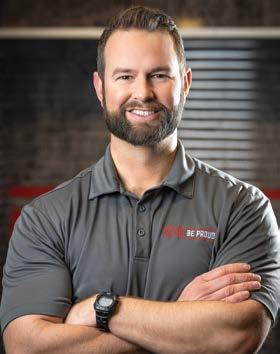
operate heavy machinery and robots, weld, work as a lineman, drive a commercial truck, electrify a football field, fix a sprung leak and many more.
For many students, these simulators are the first exposure to careers they may not have considered. The mobile unit allows participants to “test drive” professions in a safe, engaging environment, while learning about salary ranges, required certifications, and pathways to employment. By demystifying technical professions and showing the skill-based nature of the work, the mobile units capture students’ interest and helps shift outdated perceptions.
At its core, Be Pro Be Proud Arkansas is not just a recruitment effort; it’s a cultural campaign. The initiative emphasizes that technical professions are not “second choice” careers, but rather viable, rewarding options that provide stability and advancement. The message is clear: professions in manufacturing, construction, transportation, and utilities are essential to Arkansas’ future, and industries need the next generation of talent to thrive. These are careers that AI won’t replace.

Beyond awareness, Be Pro Be Proud Arkansas is dedicated to connecting students directly with career opportunities. Employers across the state partner with the initiative to help identify talent pipelines, support workforce development, and introduce students to real-world opportunities. The program hosts events, job fairs, and networking opportunities where students can meet industry leaders, learn about apprenticeships, and explore pathways tailored to their skills and interests.
One standout feature is the organization’s Draft Day events, where high school students are paired with employers for interviews, internships, and job placements. Much like an athletic draft, students are celebrated for their talents and are allowed to step directly into the workforce. These events create excitement while reinforcing that technical professions are valuable and honorable career paths.
The success of Be Pro Be Proud Arkansas has attracted national
attention. Since its founding, the program has expanded to inspire similar efforts in six states. Arkansas’ model serves as the blueprint. It shows how state and industry-supported initiatives can address workforce shortages while also transforming cultural perceptions.
The impact of Be Pro Be Proud Arkansas is significant and growing. Each year, thousands of students interact with the mobile workshop and participate in outreach events. Teachers report that the program opens their students’ eyes to possibilities they had not previously considered, while employers see new energy entering their industries.
Arkansas faces an aging workforce. Many skilled workers are approaching retirement age, creating an urgent need for young talent. Be Pro Be Proud is helping close that gap by equipping students with knowledge, confidence and access to pathways that lead to stable, fulfilling careers.
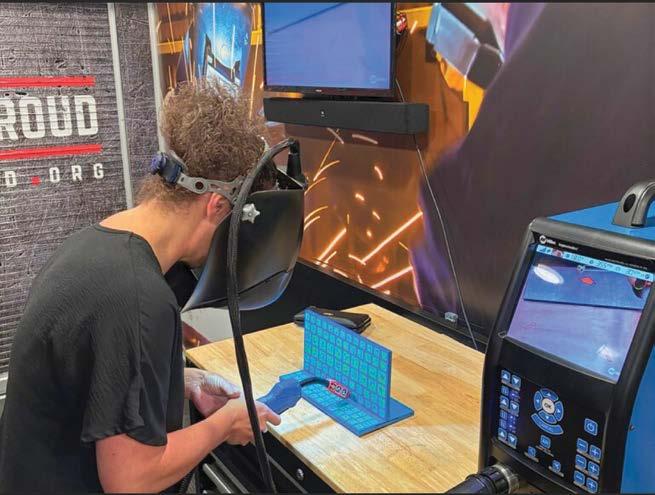
“Be
Arkansas stands as a reminder that college is one path, but not the only one. This program is building tomorrow’s workforce.”
— Andrew Parker
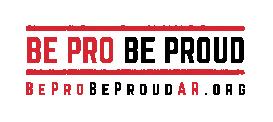


Phillip Poston, Hytrol Chief Development Officer
What inspired Hytrol and the other manufacturing partners to establish the Workforce Training Consortium Endowment?
This endowment began with my grandfather’s belief that workforce development was the key to long-term community success. He understood that Hytrol’s investment in the workforce solely for the benefit of our company wouldn’t create the larger impact our region needed. By bringing manufacturers together, there was a multiplier impact on the resources that could provide more advanced training options with better accessibility than any of us could achieve on our own. We do this work not for the recognition, but rather because Community is one of our core values. We believe in doing the right things for the right reason.
Why did you choose to structure this investment as an endowment?
Another core value of ours is Commitment, which we define in part by taking the long-term view. An endowment ensures this commitment doesn’t end after a few years of investment in workforce development. It allows us to continually reinvest in employees, students, educators, and training programs making this work part of the fabric of our community, no matter how specific needs change over time.
Hytrol is known for being a leader in manufacturing. How does supporting workforce training through philanthropy fit into your company’s overall mission and values?
At Hytrol, we create material handling technology and relationships that move the world, but it’s the people and communities behind each relationship that drive our philanthropic commitment. Supporting workforce training through philanthropy reflects our values of stewardship, responsibility, and partnership. It’s our way of extending opportunity, not just for our company but for every business and individual in our region.
Since its creation, the fund has already granted nearly $83,000 back into the community. How have those grants made an impact?
The projects funded through this endowment show both the diversity of our region and the creativity of our educators. The impact goes farther than Craighead County and includes initiatives in robotics engineering
programs, manufacturing camps for middle school students, career awareness projects, scholarships for engineering camps, software, and virtual reality headsets. Each project creates a spark — helping students imagine career pathways and giving teachers new ways to prepare them for the workforce.
Why was Arkansas Community Foundation the right partner to hold and manage this endowment?

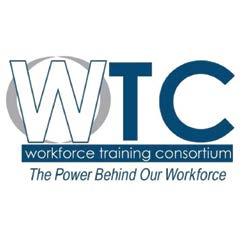
The Community Foundation’s mission of building stronger communities is at the heart of our efforts, too. Their local presence means decisions are guided by people who understand our workforce needs firsthand. My wife currently serves alongside other leaders in our community on the Craighead County Community Foundation board, and I have been a past member. We know how this organization functions, and we actively work to continue supporting others who also invest.
What do you see as the biggest workforce challenges facing Arkansas right now, and how do you hope this endowment helps address them?
One of the biggest challenges is preparing students early enough so they can intentionally pursue career pathways, whether in manufacturing, engineering, or other fields critical to Arkansas’ future. Another challenge is making sure the labs and spaces for learning are state of the art. These funds help bridge those gaps, by investing in projects that expose students to careers and empower teachers to bring learning to life in innovative ways.
Looking ahead, what is your ultimate hope for this fund?
My hope is that the funds from this investment will make a huge impact for decades to come because they help people create a better life for themselves. Workforce development is crucial for business, but at the heart of the issue is creating opportunities for people in our community to have meaningful work and live their lives to the fullest. We know that when students, employees, and educators are living this kind of life, our businesses are going to be successful, and our community is going to thrive for generations.
